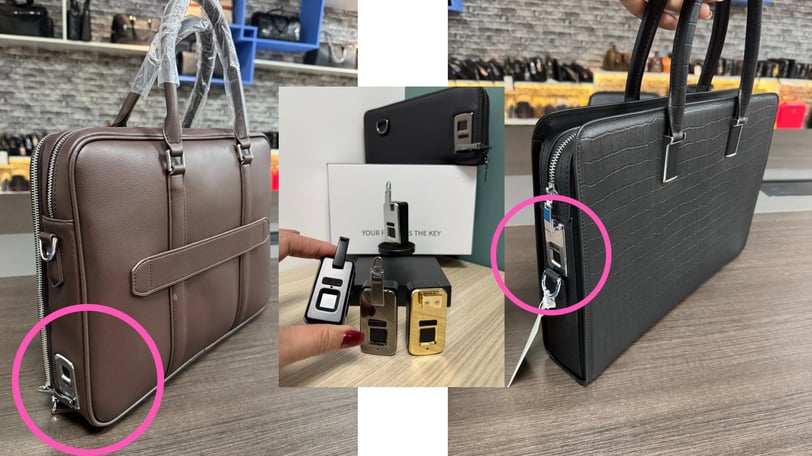Why I Chose Fingerprint Locks Over Combination Locks for My Laptop Bag Design
the choice was clear – biometric technology isn’t just a trend; it’s the future. Here’s why I prioritized fingerprint authentication in my designs.
3/25/20252 min read


As a designer of modern laptop bags, every decision I make revolves around balancing security, convenience, and user experience. When it came to choosing between fingerprint locks and traditional combination locks, the choice was clear – biometric technology isn’t just a trend; it’s the future. Here’s why I prioritized fingerprint authentication in my designs:
1. Eliminating the Password Paradox
Combination locks force users to remember what they shouldn’t have to. Studies show that 65% of people reuse passwords or write them down – a critical vulnerability when protecting devices like $2,000 laptops. Fingerprint authentication removes this weak link entirely. Your fingerprint isn’t something you can forget, share accidentally, or have shoulder-surfed at a coffee shop.
2. Speed Meets Situational Awareness
Picture this: You’re rushing through airport security with a laptop in one hand and a boarding pass in the other. A combination lock requires 8-10 seconds of focused dialing – time you don’t have. My fingerprint lock opens in 0.1 seconds with a single touch, keeping you mobile and alert in high-stress environments.
3. Adaptive Security Layers
Modern fingerprint sensors do more than just scan – they learn. The AI-powered modules in my design:
Improve recognition accuracy by analyzing 120+ fingerprint data points
Distinguish between real skin and prosthetics/silicone replicas
Auto-lock after 3 failed attempts and send Bluetooth alerts
Traditional combination locks? They’re equally “secure” whether opened by you or a thief who watched you spin the dials.
4. The Psychology of Trust
There’s an undeniable psychological premium to biometrics. When business clients unzip a bag with a fingerprint scanner, it signals cutting-edge professionalism – like using a MacBook’s Touch ID during a pitch meeting. A combination lock feels dated by comparison, akin to using a physical key in a smartphone era.
5. Durability Without Compromise
Skeptics ask: “What if the sensor fails?” My answer lies in:
Military-grade IP68 waterproofing (survives rainstorms)
Self-cleaning ultrasonic sensors that reject dirt/oil
Emergency backup power via USB-C
These aren’t smartphone-grade parts – they’re components tested to withstand 100,000+ unlocks.
The Bigger Vision
This isn’t just about replacing a lock. It’s about redefining how we interact with everyday objects. By integrating fingerprint tech into laptop bags, I’m bridging the gap between digital and physical security – one seamless touch at a time.
